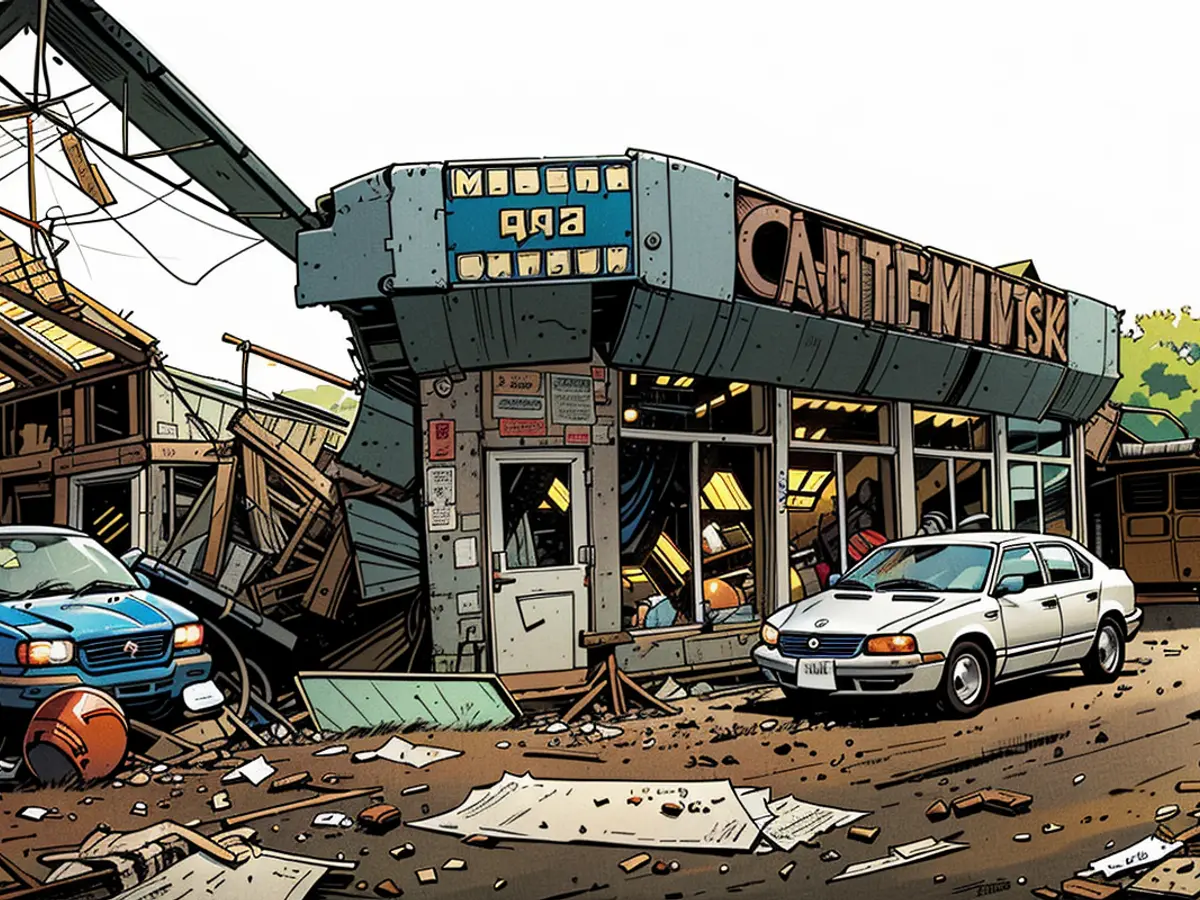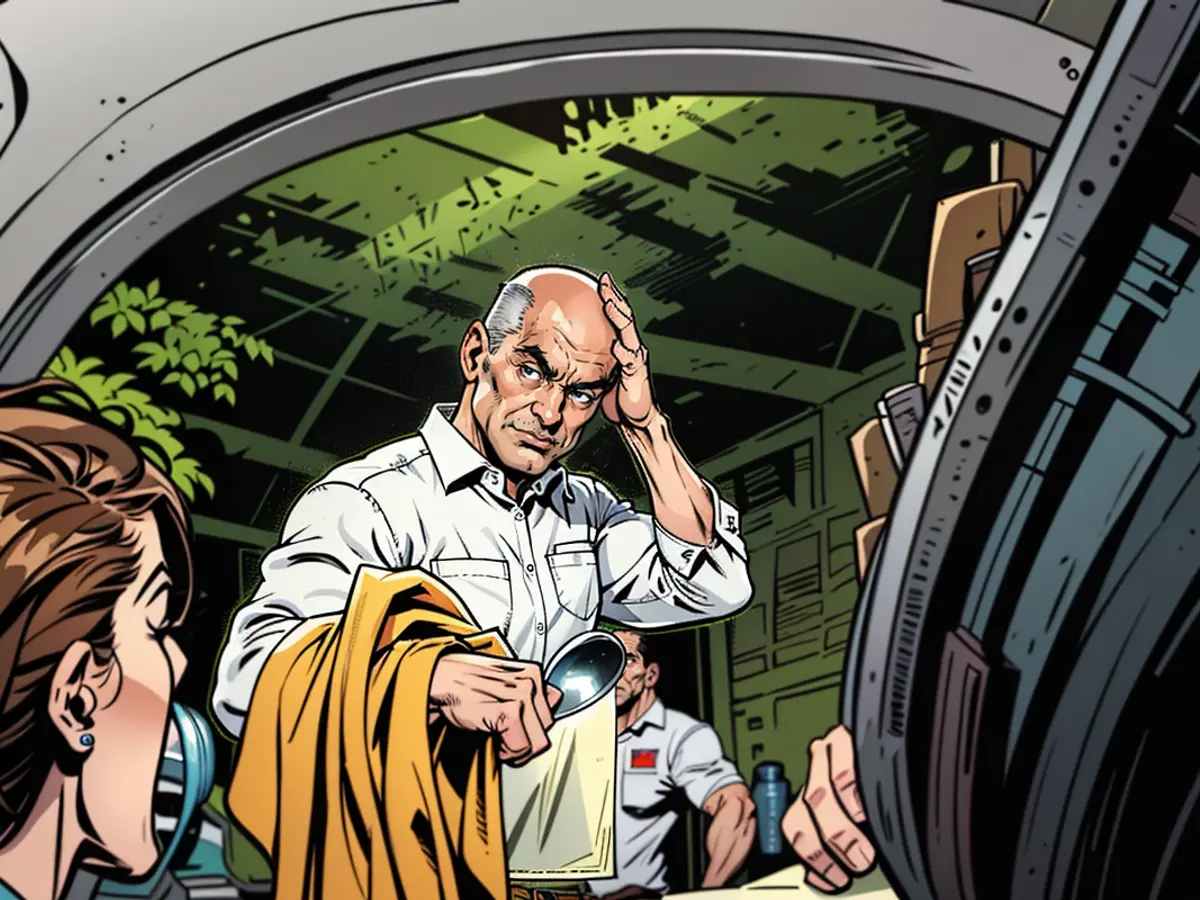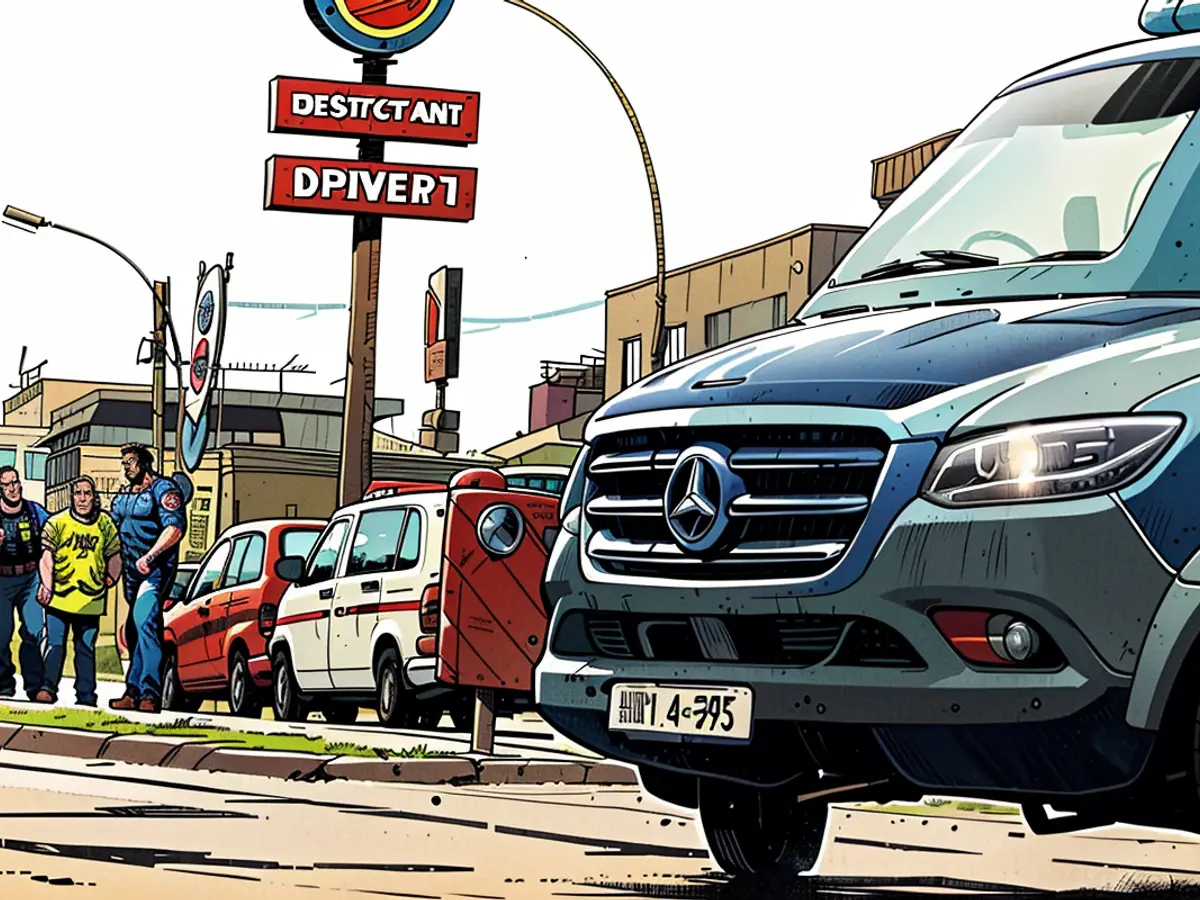- Merz sets deadline for streetlight rejection by Tuesday
In the discussion surrounding the return of certain migrants at Germany's borders, CDU head Friedrich Merz has given the coalition government a deadline until Tuesday. If the federal government doesn't provide a firm promise by then to stop uncontrolled immigration at the borders and turn back those who continue to enter, further negotiations with the federal government are pointless, Merz stated at an event in Brandenburg an der Havel.
The Union's parliamentary group leader had previously expressed his opinion on Tuesday following the migration and internal security meeting - without setting a specific date. Merz didn't participate in the confidential discussions. Participants included representatives of the traffic light government, federal states, and the Union.
Merz's ultimatum criticized by SPD
The SPD has criticized the Union's demand for returns as a prerequisite for further negotiations. "We have a security plan in place with the traffic light coalition, and now the Union is making demands, and we're checking if they match," said party leader Lars Klingbeil on RTL and ntv's "Early Start." "But we shouldn't impose these negotiations from the outside with any demands or ultimata."
In his evening campaign speech, Merz stated that the legality of returns no longer needs to be questioned. "The approvals showing it's possible are at the Federal Ministry of the Interior and the Federal Ministry of Justice."
Lower Saxony's SPD Interior Minister Daniela Behrens, who participated in Berlin's migration talks, showed openness to returns - under one condition: "If it's legally possible - and this must be thoroughly examined - then we should do it," she told "t-online." "I believe the SPD-governed states can rally behind this."
Green Party Mihalic opposes returns at border
Green Party interior policy spokeswoman Irene Mihalic stated to the Funke Mediengruppe newspapers: "Asylum seekers cannot be repatriated at the border under European law, as the Dublin Regulation applies and the responsible member state must be determined during the asylum process. This is often difficult to determine and practically impossible to implement at the border."
The CDU/CSU parliamentary group manager had argued that returns directly at the border are compatible with existing law. According to the Dublin rules, the country where a migrant initially arrives in Europe is usually responsible for the asylum procedure.
A spokesperson for the Federal Ministry of the Interior confirmed that returns have already been taking place at German borders. Since October last year, 30,000 people have been turned back. Since mid-October 2023, there have been border checks to Poland, the Czech Republic, and Switzerland, and since September 2015 at the German-Austrian border. Returns are currently possible if someone does not apply for asylum or if there's an entry ban against them.
Municipalities call for involvement in negotiations
The municipalities, in turn, are demanding participation in cross-party talks. "Because integration takes place at the local level," stated André Berghegger, the managing director of the German Association of Towns and Municipalities, on Deutschlandfunk. Here, many people are taken in, accommodated, cared for, and integrated.
Immigration needs to decrease, municipalities have reached their capacity limit, stressed the CEO. Housing is full, staff is limited, and the integration of volunteers is exhausted.
The German Association of Towns and Municipalities called for a change in migration policy in a position paper. The municipalities' absorption and integration capacity is exhausted, it stated. Therefore, a strict limitation on irregular migration is "urgently necessary." The association welcomed the federal government's security package presented at the end of August - although it lacks a comprehensive concept for a fundamentally different migration policy. According to the association of towns and municipalities, the subsidiary protection status for refugees should be abolished, the number of deportations - also to Syria and Afghanistan - should be increased, and border controls should be continued.
SPD to discuss security package in Bundestag next week
The SPD wants to discuss the security package in the Bundestag for the first time next week, as decided by the parliamentary group's executive board to prepare for their retreat. "The government has agreed to tighten gun laws, expand the powers of security authorities, and take further measures to restrict illegal migration. The Federal Ministry of the Interior has announced that it will present draft laws within the coming days."
Criticism from CDU chair Rhein and SPD chair Wagenknecht
CDU conference of ministers-presidents chair Boris Rhein (CDU) called for the implementation of earlier-agreed measures to curb irregular migration. "This is taking too long," said the Hessian state premier to dpa. Chancellor Olaf Scholz must prioritize limiting migration.
SPD chair Sahra Wagenknecht had a grim assessment of Tuesday's meeting. "This wasn't a migration summit, but a summit of work avoiders," she told the Funke Media Group newspapers. She called for the proposals of the association of towns and municipalities to be implemented. "After this summit, it seems clear: the numbers will not significantly decrease until the federal election, and the situation will continue to escalate," said Wagenknecht.
FDP sees common ground
In a different perspective, the head of the FDP parliamentary group, Christian Dürr, deemed the discourse as "genuine dialogues of substance." He shared with the German Press Agency, "We're all chasing after resolving a societal dispute that has been persistent for years. The dedication shown by all parties lately gives me confidence that we can establish order and management over migration collective efforts."
The FDP representative, Joachim Stamp, pushed for the withdrawal of social assistance for individuals facing deportation. "Those imminently due for deportation should be handed a return flight ticket and a minimal financial assistance of a few hundred euros upon reaching their destination nation," Stamp, a former North Rhine-Westphalia integration minister, suggested to the German editorial network. Stamp holds the role of the federal government's special envoy for migration agreements. He affirmed that his statement was not a reflection of his official position.
Following the criticism from the SPD, Merz doubled down on his stance during a later event, stating, "Given the legal basis for returns, it's clear that the debate on migration should include a discussion on return policies." In response to Merz's continued push for return policies, Lower Saxony's Green Party Interior Minister Daniela Behrens reiterated, "Under the current European law, asylum seekers cannot be repatriated at the border, and the Dublin Regulation must be upheld during the asylum process."







